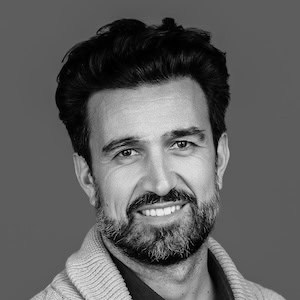-
Why Africa’s Energy Sector Needs Transparency: A Q&A with the Head of KawiSafi Ventures, Acumen’s for-Profit Energy Fund
While investing patient capital into for-profit firms has been Acumen’s MO for decades now, the organization itself has remained a non-profit. But in April, Acumen announced that it was doing something it hadn't done before: creating a commercial investment fund. Called KawiSafi Ventures, the for-profit fund has lined up $70 million to boost clean energy firms – and therefore clean energy access – in East Africa. Managing Director Amar Inamdar explores the fund's focus on scalable businesses, and why debt and equity need to start playing nice with one another in the sector.
-
MSMEs Are the Backbone of Developing Economies: New Research Shows How Digital Platforms Can Boost Their Impact
To keep pace with the growing youth population, 600 million new jobs must be created globally over the next 15 years. Micro, small and medium-sized enterprises (MSMEs) will be key to that effort, say Alina Kaiser at Caribou Digital and Annabel Schiff at the Mastercard Foundation’s FiDA Partnership. They explore how digital platforms can boost MSMEs in emerging markets, based on learnings from 27 micro-entrepreneurs in Kenya.
- Categories
- Technology
-
Beyond ‘Take-Make-Waste’ Supply Chains: MIT Solve Seeks Circular Economy Solutions
Most of the products we use today — clothing, furniture, electronics and more — come from “take-make-waste” linear supply chains. These systems result in 2 billion tons of solid waste each year, produce major carbon emissions, and often involve toxic working conditions. MIT Solve is seeking new models through its Circular Economy Challenge, which will give $10,000 grants to the eight most promising solutions - the application deadline is July 1.
- Categories
- Environment, Transportation
-
Creating an Inclusive Fintech Ecosystem? Here Are Three Facts Accelerators Should Consider
BFA's Catalyst Fund started with one goal: to support early-stage inclusive fintech entrepreneurs in developing accessible, high-quality and relevant financial solutions for the underserved. After three years of operations, the accelerator has worked with 20 startups across 13 emerging markets, helping to create better credit, payment, insurance, savings and investment solutions that improve the financial health of people with low incomes. Maelis Carraro and Rasima Swarup at BFA share some of the fund's lessons on how to build an inclusive fintech network.
- Tags
- fintech
-
Moving Beyond Credit: Why Savings Should Take Center Stage in Digital Financial Inclusion
As mobile money continues to overtake traditional banking in emerging markets, putting financial services within reach of the unbanked, credit remains front and center in the conversation. But Buhle Goslar at JUMO says it's time to focus on an important yet underutilized tool that could help promote a well-rounded, healthy financial life for excluded customers – savings. She details how new tech and training programs can go beyond simple access and towards a new culture of savings.
- Categories
- Finance, Technology
-
Answering Rohingya Refugee Crisis in Bangladesh with Skills Development, Artisan Training
Innovation is often associated with the newest technology or the latest app. But it also can be seen in the fresh application of a tried-and-true strategy – just in a new context. In Cox’s Bazar, a small town on the southeastern coast of Bangladesh, extreme poverty, a fraught socio-cultural landscape and the Rohingya refugee humanitarian crisis have exacerbated existing vulnerabilities and placed an unprecedented burden on women in the host communities. Sadiaa Haque and Samira Syed of BRAC explain how the organization is helping them bounce back through artisanal skills training and employment opportunities.
- Categories
- Uncategorized
- Tags
- creative economy, refugees
-
When Failure is Not an Option: Understanding – And Accelerating – the Success of Refugee Entrepreneurs
This World Refugee Day, the global community is experiencing the highest level of displacement on record. Though entrepreneurship can provide a route to livelihood for which resilient, community-oriented refugees are particularly suited, they often struggle to surmount barriers of language and discrimination, on top of the high failure rates that are typical of small businesses. Amy Gillett and Kristin Babbie Kelterborn at the William Davidson Institute share lessons from support programs helping refugees overcome tough odds to economically enrich their host countries.
- Categories
- Uncategorized
-
Serving Refugee Communities with Tech, Energy Access, Entrepreneurship: Mastercard and USAID’s Collective Approach
Last year, USAID and Mastercard established the Smart Communities Coalition (SCC), a network of 35+ public and private organizations. The group is developing new ways companies, NGOs, governments and UN agencies can co-design and co-implement programs that empower people and enable growth in energy access, connectivity and digital tools. Katrina Pielli with USAID and Sasha Kapadia with Mastercard explain why the group chose to focus on Uganda and Kenya as pilot countries, which collectively host over 1.5 million refugees.
- Categories
- Energy, Technology










